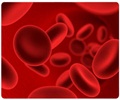Researchers have managed to achieve an improved survival rate in mice with occluded lung vessels

The inter-disciplinary and inter-institutional collaborative research team, which was led by Wyss Founding Director Donald Ingber M.D., Ph.D., and Wyss Technology Development Fellow Netanel Korin, Ph.D., also included Wyss postdoctoral Fellow Mathumai Kanapathipillai, Ph.D., as well as Benjamin D. Matthews, Marilena Crescente, Alexander Brill, Tadanori Mammoto, Kaustabh Ghosh, Samuel Jurek, Sidi A. Bencherif, Deen Bhatta, Ahmet U. Coskun, Charles L. Feldman, and Denisa D. Wagner from Brigham and Women's Hospital, Children's Hospital Boston, Harvard Medical School, the Harvard School of Engineering and Applied Sciences, and Northeastern University. Ingber is also the Judah Folkman Professor of Vascular Biology at Harvard Medical School and Children's Hospital Boston, and Professor of Bioengineering at Harvard's School of Engineering and Applied Sciences.
Commenting on the work, Ingber noted that "the vascular nanotherapeutic we developed that selectively becomes activated in regions of high shear stress, much like living platelets do, is a wonderful example of how we at the Wyss Institute take inspiration from biology, and how biomimetic strategies can lead to new and unexpected solutions to age-old problems that existing technologies can't address."
Source-Eurekalert














